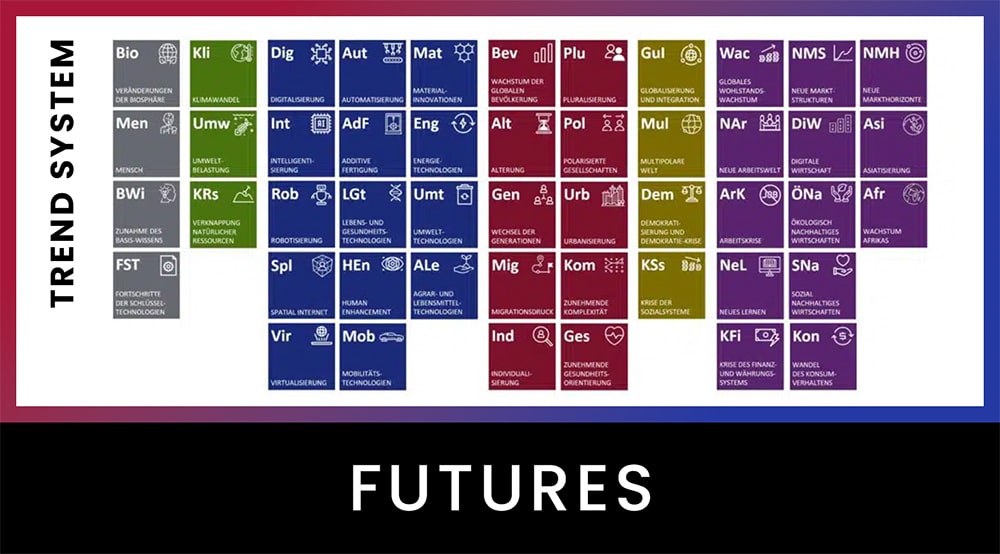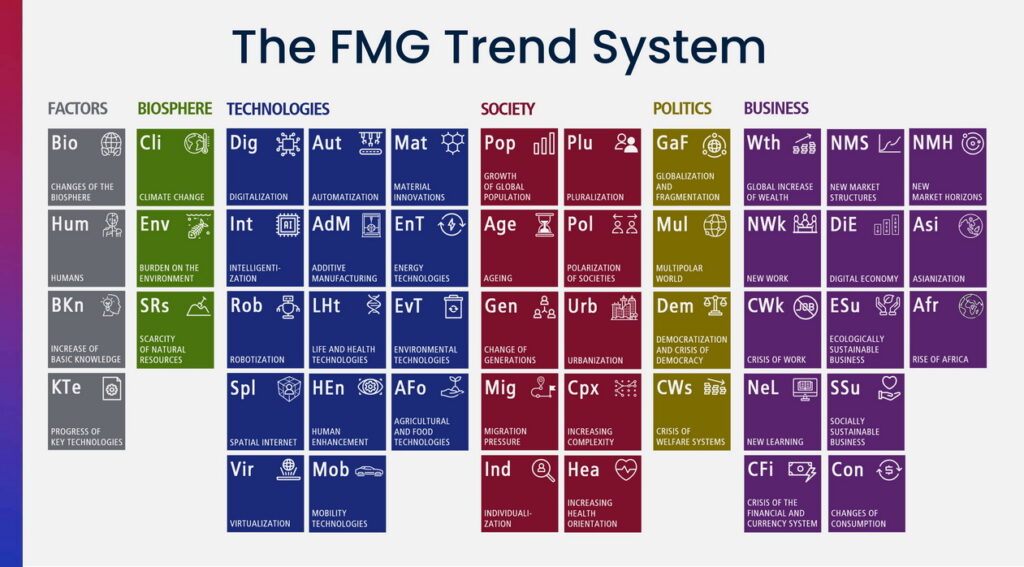Dr. Pero Mićić
Will electric cars really catch on? Are they really the future? If you want to have a competent say on these issues, this is THE video for you. I bring all the important arguments. And at the end, I’ll tell you what my assessment is on that.
Here we are talking about internal combustion engines, i.e. diesel and gasoline-powered passenger cars, and battery-electric-powered passenger cars. We will look at hydrogen fuel cell drives in one of the next articles.
You are currently viewing a placeholder content from YouTube. To access the actual content, click the button below. Please note that doing so will share data with third-party providers.
More InformationWhat I am presenting here now are all measurable, provable facts. Sources can be found in the show notes. In some places it is my personal assumptions about the future where there are no facts. And no, I am not being paid by anyone for this video. I am already interested in how you would answer the question and what arguments you have. Post it in the comments.
Plus arguments
Let’s look at the argument balance. What are the arguments in favor of electric cars becoming widespread and what are the arguments against them? Let’s first look at the plus arguments for buying all electric cars in 2030.
Comfort and charging
1,000 kilometer range
The range of an electric car will be close to 1,000 km in 2030. Although pretty much no one really needs that. The average driver would only have to fully charge once every three weeks. But in fact, electric cars are charged like cell phones while you sleep. Only on long-distance trips do you need a fast charger on the highway every few hours.
300 kilometers in 10 minutes
Lithium-ion batteries will charge well over 300 km in 10 minutes in 2030. The upcoming solid-state batteries will be able to charge over 500 km in five minutes. Even on long-distance trips, the coffee break is more than enough.
Store everywhere
Tesla has already shown as a startup with little money that the claim that charging infrastructure is a problem because it is so expensive was wrong. Charging stations will be everywhere in 2030. Electric cars can be charged at billions of outlets. In all parking lots, at work and at home. At home, a power outlet is enough. And in apartment buildings, landlords must provide charging facilities. With such high ranges, no one needs to charge constantly.
Loading saves time
Charging usually takes only 5 minutes per week. Plug in, unplug. You don’t drive charging, you almost always just charge while you sleep.
Reliability and safety
Maximum reliable
Battery electric drives are extremely simple. Famously, an electric drive has only 20 moving parts, but an internal combustion engine has 1,500 or more. There can be much less breakage because there is much less. That is why electric cars are very reliable and hardly in need of repair.
High accident safety
Without the big engine in the front, they have more crumple zone. The fixed battery in the floor provides maximum safety in the event of a side impact.
High fire safety
Many remember newspaper reports about electric cars on fire. However, the statistics make it clear that electric cars are at least five times less likely to burn than “internal combustion” cars.
Emotion
More driving pleasure
Electric cars are more fun to drive because they respond instantly and accelerate more. The battery mounted in the floor makes the vehicles much more stable. And electric cars are pleasantly quiet.
Image change
I expect that by 2030 it will be uncool to drive an internal combustion car. This is an unobjective but weighty argument. When I see that young people are excited about Tesla and electric cars, but not about other cars, I conclude that my assumption will prove correct.
Costs
Battery for 2 million kilometers
The most expensive part of the electric car today is the battery. In 2030, rechargeable batteries will last more than 2 million kilometers. Already, it’s approaching 1 million miles, or 1.6 million kilometers. At today’s mileage, this corresponds to over 100 years. Theoretically. In fact, such driving services will be needed by autonomous robo-taxis. Which points to a concept of the future.
Cheaper battery production
In 2030, batteries will cost a maximum of one-third per KWh compared to today. Costs have fallen by an average of 15% each year. And they continue to fall.
Lower purchase price
The battery is the most expensive component of an electric car. For this reason alone, the purchase of an electric car in 2030 will be drastically cheaper than that of a combustion engine. In addition, the much simpler design of a battery-electric drive is a reason for much lower purchase prices.
Cheaper operation
In terms of total cost of ownership per kilometer, electric cars are already cheaper in the early 2020s. A Model 3 from Tesla is already drastically cheaper per mile than a Toyota Camry[1]. By 2030, internal combustion engines simply won’t be able to keep up in terms of price.
Raw materials
Raw materials last for decades
The raw materials needed for today’s lithium-ion batteries are already not really scarce, if you look at it neutrally. New rechargeable batteries are becoming even more resource-efficient. Rare earths are not used in rechargeable batteries anyway, but they are used in electric motors, and also in combustion cars, and cell phones, and laptops, and vacuum cleaners.
Rechargeable batteries are 95% recyclable
Rechargeable batteries are over 95% recyclable. Even after 1 million km, practically all the material is still present in the battery. There is no reason that sufficient recycling capacity will not emerge. So there can be no talk of overexploitation.
Hardly any critical raw materials
Lithium-ion batteries will require fewer critical raw materials such as cobalt, possibly none at all. We will then only discuss child labor when it comes to batteries for cell phones, PCs, shavers, etc.
Power
Only 20% more power requirement
Even with 100% electric cars, we only need a maximum of 20% more electricity. Two internal combustion engines already require as much electricity for fuel production as is needed to operate one electric car in total.
New power storage
The storage of electricity for days, weeks, and even months is just beginning to take shape in countless innovations, such as giga-batteries, layered energy storage, and many more new solutions. I’ll do a separate post on that.
Political independence
We have to import oil to a large extent. And not always from reputable suppliers. We can generate the energy for electric cars here at home. That’s not a strong selling point, but politically it is.
Environment
Less energy demand
A big Tesla needs only one third of the energy of a VW Golf for 100 km. Battery electric drives are by far the most efficient.
Little water consumption
Two beef steaks or eleven avocados cause more water consumption than the production of a very large battery.
Minimized CO² emissions
CO2 pollution will be minimal well before 2030 due to battery production with renewable energy (especially at Tesla). Internal combustion engines do not have this potential. The share of renewable energy sources is growing strongly. Already today in the rather poor German electricity mix, electric cars are more environmentally friendly. Fossil-fueled cars continue to consume finite oil and emit pollutants. Emissions from electric cars continue to fall. Both in production and in operation. Fossil-fueled vehicles are exhausted in this respect.
What are the advantages of electric cars?
Minus arguments
What are the arguments against buying almost all electric cars in 2030? If we still buy cars at all?
Technology
Innovation in combustion engines
In the case of the internal combustion engine, some say there is still a great leap forward in innovation to come. Which one would that be?
Electric drives are at the beginning of their development. Combustion engines are already exhausted. The progress made in the last twenty years has shown that the optimization of internal combustion engines has to a large extent been exhausted. They are near the end of further development. Electric drives, on the other hand, are still at the beginning of their development.
Hydrogen is the future
In ten years, hydrogen fuel cell propulsion will be ready. Battery-electric drives are only a transitional technology. A majority is still convinced that battery electric cars are a transitional technology and that in ten years the hydrogen fuel cell car will win. Hydrogen as an energy storage medium in passenger cars makes no sense from a technical, economic and ecological point of view. And we’ve been researching it for decades. See separate video.
Plug-in hybrids are the best solution
Plug-in hybrids are also internal combustion engines and have a much longer range, is what you often hear and read as an argument. Plug-in hybrids have two complete drive systems. An internal combustion engine and an electric drive. This is a technically, economically and ecologically nonsensical alternative in 2030. With a range of 1,000 kilometers, they are also unnecessary.
Economy
Why change anything?
We have everything there that is needed for the production of wonderfully functioning combustion cars. facilities, know-how, experts, etc. So why change anything? Nokia thought the same with the iPhone. How do you explain that to customers? Customers are just beginning to see the benefits in performance, driving pleasure, ecology and cost.
The Chinese will focus on the simple electric drives and offer incredibly good and inexpensive electric cars.
Protect the automotive industry!
A frequent appeal is: We must protect our automotive industry after all! Oh yes, we must. Protect less than save. But customers won’t be interested enough, and if we then do something super well that no one buys anymore, internal combustion cars, we’ll have all the more of a problem.
Plus arguments are not believed
Those who believe that the arguments about the lower environmental impact of electric cars are not true will find electric cars bad. In the long term, however, it will become less and less possible to argue against the facts that a car powered by diesel or gasoline is more environmentally friendly or conserves raw materials or does not cause political and social conflicts over oil.
Anyone who, contrary to technical facts, believes that batteries are toxic hazardous waste and simply ignores recycling will not like electric cars. So I can continue that now. Whenever someone does not want to believe the facts about sufficient raw materials without child labor, high ranges and short charging times etc., she or he will not like electric drives.
It’s just that they are not fact-based arguments, but emotionally determined opinions. These are not true, but they just lead people to reject electric cars for as long as they can.
Ultimately, it will be the same as with smartphones. What factual and unobjective arguments there were against smartphones, for example, seven days of range on one charge with my Nokia. And? What happened? Almost everyone has one.
What are the disadvantages of electric cars?
Result: Yes, electric cars will prevail
So, taken as a whole, it does look clear. And so I come to the future assumption: by 2030, virtually no one will buy anything other than an electric car. We can bet yes 😊.
What do you think about it? Of course, you can have a completely different opinion on this. But then please not only out of emotion, but please justified with factual and logical arguments. Share this article and the accompanying video widely to friends and acquaintances, so that they too can have their say.
Follow these links as well:
► The Future Strategy Program for SMEs
► Free video crash course THE FUTURE OF YOUR BUSINESS
► BUSINESS WARGAMING for robust business and future opportunities
► KEYNOTES by Pero Mićić for your employees and customers
Have a bright future!
X
X
Sources
Sources on the main controversial issues:
- Overall scientific view: https://www.isi.fraunhofer.de/content/dam/isi/dokumente/cct/2020/Faktencheck-Batterien-fuer-E-Autos.pdf
- To the customer experience: https://derletztefuehrerscheinneuling.com/2019/10/10/was-mussten-andere-hersteller-anbieten-damit-ich-meinen-tesla-aufgebe/
- On the willingness to buy: https://ecomento.de/2019/09/06/bitkom-umfrage-47-prozent-koennen-sich-elektroauto-kauf-vorstellen/
- About the range: https://www.auto-motor-und-sport.de/tech-zukunft/alternative-antriebe/batterie-200-kwh-tesla-model-s-mit-1000-km-reichweite/
- On climate and environment: https://www.volker-quaschning.de/artikel/Fakten-Auto/index.php
- CO2: https://edison.media/erklaeren/elektroauto-akkus-so-entstand-der-mythos-von-17-tonnen-co2/23828936.html and https://www.tagesspiegel.de/wissen/schwedische-forscher-korrigieren-sich-elektroautos-sind-viel-umweltfreundlicher-als-angenommen/25298932.html
- To the water: https://edison.media/erklaeren/lithium-aus-lateinamerika-umweltfreundlicher-als-gedacht/24022826.html and https://www.tagesspiegel.de/wirtschaft/nachhaltigkeit-von-tesla-akkus-wenn-elf-avocados-umweltschaedlicher-als-eine-e-auto-batterie-sind/25291904.html
- Lithium: https://ecomento.de/2017/11/21/auch-bei-elektroauto-boom-lithium-wird-nicht-knapp/
- Cobalt: https://edison.handelsblatt.com/erklaeren/kinderarbeit-in-minen-weniger-e-autos-sind-auch-keine-loesung/22671726.html and http://geohorizon.de/2017/06/02/tesla-einziger-e-auto-hersteller-der-kein-kobalt-aus-kinderarbeit-nutzt/
- Recycling: https://www.adac.de/rund-ums-fahrzeug/elektromobilitaet/info/elektroauto-akku-recycling/
- Battery life: https://edison.media/der-kilometer-millionaer/25197501/ and http://www.unterwegs-auf-der-autobahn.de/der-marathon-kilometer-mann
- About the weight: https://www.heise.de/hintergrund/Ist-Leichtbau-ueberschaetzt-4356412.html
- Caravan: https://tff-forum.de/t/bericht-model-3-mit-wohnwagen-1182-km-ueber-die-alpen/73092
- Power and resource requirements:https://www.bmu.de/fileadmin/Daten_BMU/Download_PDF/Verkehr/emob_strom_ressourcen_bf.pdf
- For power requirements: https://edison.media/e-hub/so-viel-strom-brauchen-autos-mit-verbrennungsmotor/20826274.html and https://www.wiwo.de/technologie/mobilitaet/elektromobilitaet-reicht-der-strom/20231296-2.html
- On power grids: https://efahrer.chip.de/news/Harald-Lesch-irrt-sich-Warum-die-Brennstoffzelle-nicht-die-Zukunft-ist_10815
- Crash safety: For crash safety etc.: https://www.adac.de/rund-ums-fahrzeug/elektromobilitaet/info/sicherheit-elektroauto/
- About the fire hazard: https://www.wiwo.de/unternehmen/auto/brandgefahr-brennen-e-autos-wirklich-oefter-als-diesel-und-benziner/24457024.html and https://de.wikipedia.org/wiki/Fahrzeugbrand
- On hydrogen fuel cells: https://de.motor1.com/news/403772/vw-elektroauto-brennstoffzelle-wasserstoff/ and https://www.volkswagenag.com/de/news/stories/2019/08/hydrogen-or-battery–that-is-the-question.html and https://www.auto-motor-und -sport.de/tech-zukunft/alternative-antriebe/wasserstoffauto-brennstoffzelle-co2-neutral-batterie-lithium/
- Subsidies in China (read the text, not just the headline): https://www.auto-motor-und-sport.de/verkehr/elektroauto-markt-china-einbruch/
- Cost: https://www.adac.de/rund-ums-fahrzeug/auto-kaufen-verkaufen/autokosten/elektroauto-kostenvergleich/
- Overall view: https://www.wiwo.de/unternehmen/auto/elektromobilitaet-die-groessten-mythen-ueber-e-autos/20142790.html
- and the ultimate compilation and clarification of all myths: http://www.mythbuster.ch/Mythbuster-Elektroauto-Rotta.pdf If I have forgotten another controversial topic, please report it.
More sources
- https://www.nextbigfuture.com/2020/06/tesla-2025-and-2030.html
- https://derletztefuehrerscheinneuling.com/mythen/
- https://www.youtube.com/watch?v=D0Kg7n3ujn8&feature=youtu.be
- https://www.mosbach.dhbw.de/fileadmin/user_upload/dhbw/redaktion/presse/news_2019/DHBW_MOS_Mythen_Elektromobilitaet_Vortrag_Okt_2019.pdf
- https://www.youtube.com/watch?v=D0Kg7n3ujn8
- https://hans-josef-fell.de/die-entlarvung-der-zwei-grossen-mythen-der-e-mobilitaet
- https://edison.handelsblatt.com/erklaeren/lithium-aus-lateinamerika-umweltfreundlicher-als-gedacht/24022826.html
- https://edison.media/erklaeren/kinderarbeit-in-minen-weniger-e-autos-sind-auch-keine-loesung/22671726.html
- https://cleantechnica.com/2019/06/23/our-new-tesla-myths-page/
- https://ecomento.de/2019/05/30/vw-12-mythen-der-e-mobilitaet/
- https://www.wiwo.de/unternehmen/auto/falsche-zahlen-steile-thesen-die-mythen-der-e-auto-kritiker/23906014.html
- https://edison.handelsblatt.com/erklaeren/elektroauto-akkus-so-entstand-der-mythos-von-17-tonnen-co2/23828936.html
- https://www.next-mobility.news/auch-verbrenner-fahren-mit-strom-a-678284/?p=4
- https://ecomento.de/2019/08/14/faktencheck-elektroauto-professor-untersucht-klimabilanz/
- https://www.watson.ch/wissen/international/755959692-diesel-oekologischer-als-elektroauto-der-schmutzige-kampf-ums-sauberste-auto
- https://ecomento.de/2019/07/22/forscher-co2-beitrag-e-fahrzeug-bruchteil-von-dem-eines-verbrenners/
- https://www.adac.de/rund-ums-fahrzeug/e-mobilitaet/info/elektroauto-pro-und-contra/?mc=ext.mail.rmw.elektromobilitaet-pro-contra
- http://geohorizon.de/2017/06/02/tesla-einziger-e-auto-hersteller-der-kein-kobalt-aus-kinderarbeit-nutzt/
- https://teslamag.de/news/akkus-tesla-60-prozent-billiger-als-andere-elektroautos-26926
- https://www.tagesspiegel.de/wirtschaft/nachhaltigkeit-von-tesla-akkus-wenn-elf-avocados-umweltschaedlicher-als-eine-e-auto-batterie-sind/25291904.html
- https://www.youtube.com/watch?v=bp99BpT514U
- https://www.youtube.com/watch?v=afp_3rF5pf0&t=1s
- https://ecomento.de/2018/11/21/so-aufwaendig-ist-das-recycling-von-elektroauto-batterien/
- https://www.youtube.com/watch?v=r_NCRuMHC3Q&feature=youtu.be
- https://ecomento.de/2017/11/21/auch-bei-elektroauto-boom-lithium-wird-nicht-knapp/
- http://emobilitaetblog.de/festkoerper-akkus-koennten-den-markt-der-elektrofahrzeuge-aufwirbeln/
- https://ecomento.de/2019/01/17/elektroauto-batterie-recycling-herausforderungen-loesungen-positionspapier/




































